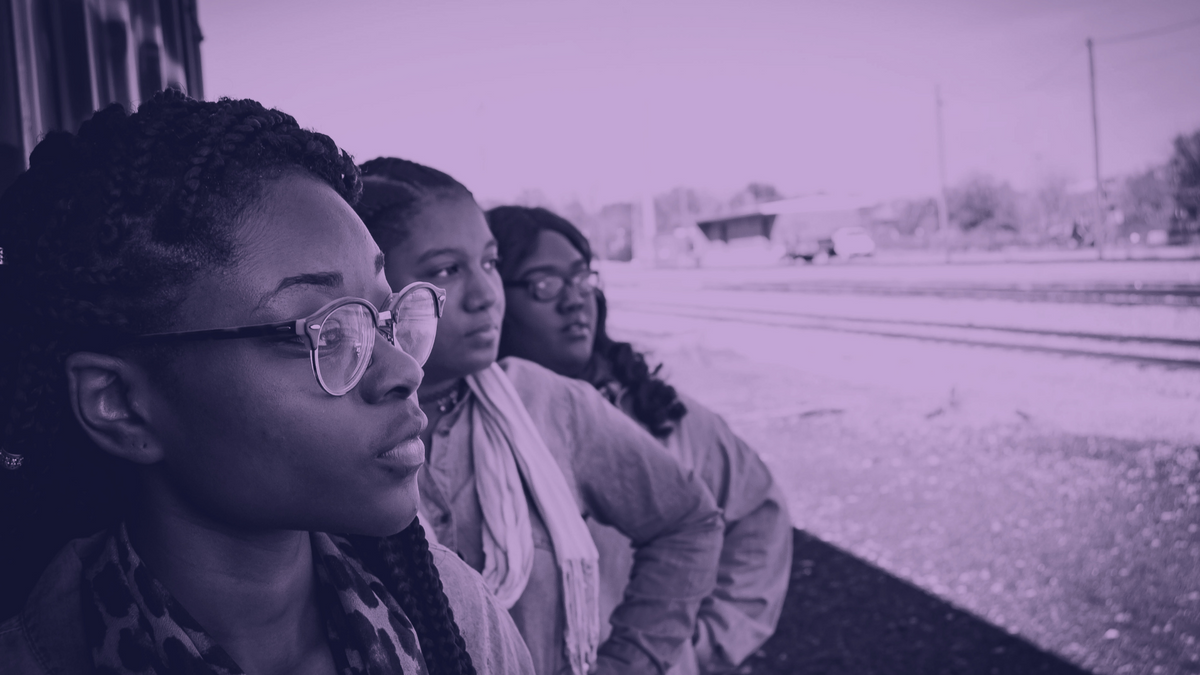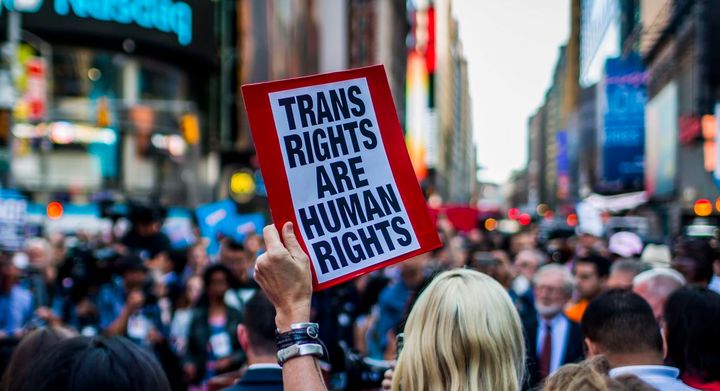On the Necessity of Black Feminism
Black women are expected to be mature, hardworking, and perfect from birth to our demise.

As a Black woman who started to consciously take on a feminist mindset in college, I have always wondered why more Black women don't identify as feminists. But this likely has everything to do with the way it was introduced to me. Before undergrad, I, too, steered clear of everything feminism. Although I didn't know much about it, what I did know was that being labeled a feminist was that it was synonymous with being a man-hater, or even worse, a man-eater. I knew that feminist characters on TV (i.e., Marcy D’Arcy and Maxine Shaw) were largely viewed as miserable ballbusters who were largely undesired by the male species.
This problem is rampant in the Black community. Many Black women are reluctant to express their dissenting opinions out of fear of being shunned and dying alone. The Black community can be incredibly callous in how it handles its women and girls. Black women are expected to be mature, hardworking, and perfect from birth to our demise. However, men are expected or even encouraged to make mistakes and we, as the “backbones of the community” are supposed to just grin and bear it.
Enter, feminism. "Feminism," my sociology professor said, "Is simply about considering how various events, situations, policies, etc., affect women, in particular."
Really?!, I thought. That's not what I thought feminism was at all. From that day forward, I started to read, research, and find out as much about feminism as possible. And what I found was that I had been lied to.
George Floyd and the Present State of the Community
I may step on a few toes here, but at this point, it’s a necessary step to take. Although the George Floyd protests were lauded as a major turning point in the Black community, as far as Black women are concerned, that couldn’t be further from the truth. In fact, the George Floyd protests proved that the more things change, the more they remain the same.
Sure, it may seem like the George Floyd protests and other recent events have helped paint Black women in a more positive light. However, I am not quite willing to hitch my wagon to that star. This is because having a group of ‘angry Black women’ ready and willing to protest, loot, riot, etc., on the behalf of Black men, is also something that only benefits Black men.
How so? Well, first of all, let’s be clear about one thing: the community has long since been a nation divided. I mean this both figuratively and quite literally.
On the one hand, by taking one look at social media, you can clearly see that the only people uplifting Black women are other Black women. On the other hand, there are countless pages and memes dedicated to promoting colorism, degrading single Black mothers, etc. This plays out in almost every facet of our community. Black women and girls are given very little respect or reverence, but still expected to take to the streets to defend Black men and boys.
Black women are considered tools; stepping stones; a means to an end. Our plights are largely ignored, and clumsily thrown on the back burner, but time and time again, we have been expected to put our feelings aside in favor of the collective. Sadly, this is hardly a new phenomenon.
Black Down Memory Lane
When it comes to social justice movements, you have to pay attention to who is present just as much as who isn’t. Throughout history, there are plenty of instances in which Black women and girls had to fight for themselves. Moreover, there have also been plenty of times in which Black women took to the front lines to defend Black men, while their needs were all but ignored.
Let’s discuss the Civil Rights Movement. By now, it’s a relatively well-known fact that the main, and pretty much only goal of the CRM was to end segregation. Despite the fact that Black women were facing sexual assault, battery, oppression at alarming rates, addressing these issues was not at all a goal of the movement. Moreover, from 1866 to the present, Black women have been the driving force behind a wide variety of laws in relation to rape and sexual assault, and yet, still remain the number one victims of these crimes to this very day.
So, in essence, Black women are also being used as mules for other communities, who have greatly benefited from the new laws created from these movements, while Black women have been left in the dust. How’s that for progress?
Still not convinced? Well, let’s see what Michael Eric Dyson had to say in this article about Martin Luther King Jr. and the Civil Rights Movement,
“Martin … was absolutely a male chauvinist. He believed that the wife should stay home and take care of the babies while he'd be out there in the streets.”
In other words, even in the midst of one of the biggest Black social justice movements ever, the community was being led by a man who believed women should be seen and not heard. This is despite the fact that Black women were obviously on the front lines of these protests as well. So, basically, even during the Civil Rights Movement, which is considered the epitome of Black togetherness, Black women were expected to fight all day, go back home, cook, clean, raise the kids, and of course, look pretty while doing it. Can you imagine the entire Black community rallying behind a Black feminist? I think not.
Nevertheless, Black women constantly remain on the front lines, unknowingly sporting a dreaded cloak of invisibility. In this community, the needs of Black women are never treated with the same level of urgency as the needs of Black men. If we speak up about anything that could negatively affect the Black male collective, we are given a proverbial pat on the head and told that these matters can wait until later. How long can we continue to wait?
Black to the Future
To drive this point home, if you think this is about the collective, please tell me where were the global protests for Breonna Taylor, Ma’Khia Bryant, and others who suffered the same fate? Mind you, Breonna Taylor, a Black medical worker who was killed while sleeping in her own home, only received media attention after George Floyd’s death went viral. To add insult to injury, Breonna was actually villainized because her boyfriend was suspected to be involved in illegal activities. So, clearly, she must be responsible for her own death, right?
On the other hand, have you seen George Floyd’s record? He had a list of at least 19 charges, which included the armed robbery of a Black woman who was at home with her kids. She was pistol whipped. Yet and still, Black women who tried to speak out about these facts were silenced by the community. They were told that we had to focus on the wrongful death of George Floyd and that his past was nothing more than a result of being a Black man living within a nation fueled by White Supremacy.
Breonna Taylor eventually got some support in the form of scattered, ineffective protests. There was by no means global outrage or demonstrations held to avenge this young Black woman. To this very day, no arrests have been made, and many still maintain that she was killed as a result of her own poor decisions. Is the Black community really this far gone that a young Black medical worker who was killed in her sleep, would take a back seat to a grown adult career criminal who got killed after committing yet another crime?
Getting on Code
I said all this to say; it's time for Black women to get on code. If you are waiting for Black men to suddenly wake up and uplift us the same way women of other races uplift their women, you may be waiting forever. Forget about feminism being a dirty word, and remember that we are free and clear to define feminism however we wish.
It's time for Black women to get on code. Although feminism is such a dirty word in our community, it only makes sense to focus on our causes and issues rather than continuing to sacrifice ourselves for the good of Black men. I am not here to say who any Black woman shouldn’t date, how they should wear their hair, or whether they should be a housewife, stripper, or anything in between. All I’m here to say is if Black women want better as a collective, we have to come together and demand it. Otherwise, we may find ourselves permanently planted at the bottom of the world’s phenotypical totem pole.
Enter your email below to sign in or become a 4W member and join the conversation.
(Already did this? Try refreshing the page!)




Comments